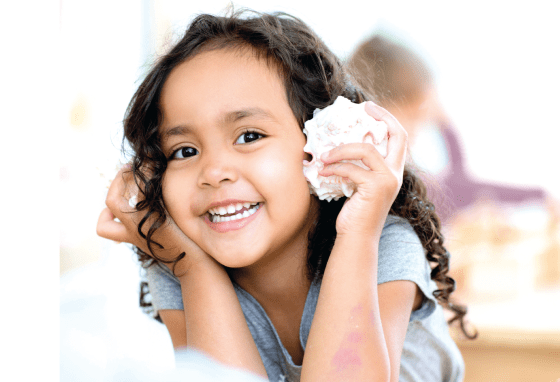We are a University Laboratory School
PLNU’s Early Childhood Learning Center (ECLC) is a campus laboratory school under the direction of the Department of Family & Consumer Sciences. It has the unique opportunity of serving the PLNU campus and Point Loma community by meeting the needs of children and their parents. At the same time, the center serves as the location for observations and demonstrations of teaching methods and other experiences for students preparing for careers with children. The ECLC is a laboratory in human relationships where children, parents, students, and teachers interact, play, work, and learn together.
We are part of the institution of the Church of the Nazarene
PLNU is an institution of the Church of the Nazarene. Our professors, teachers, and students are mature Christians who serve as models and guides to children in their growth and development. Christian living is the foundation of day-by-day living, learning, and teaching. Our program at the ECLC is planned to encourage the social, emotional, cognitive, physical, and spiritual growth of children and give guidance and support to parents in achieving a more effective and fulfilled parenthood.
Our students interact and participate in our program
Eighty to one hundred students per week are assigned to observe children for Child and Human Development courses. These observations may be done in person or remotely through the use of classroom video equipment. Extensive experience with children is required for students majoring in child and adolescent development. Some students may share specific projects or carry out assignments virtually.
Child nutrition students present mini-nutrition lessons and ask children to judge sample meals.
Kinesiology students plan and lead games, focusing on the motor development of children at the Center.
Child and adolescent development majors teach in various curriculum areas and develop lesson plans.
Students from a variety of courses do observations of children at work and play.
Our program serves children between the age of three and kindergarten entrance. It is designed to be the two years prior to entering kindergarten based on the California September 1 deadline. Children must be potty trained by the time they begin attending the ECLC. The definition of potty trained: child does not exceed more than an average of three accidents a week. Our enrollment includes children of faculty, staff, university students, and the community.
Children may attend daily, Monday/Wednesday/Friday, or Tuesday/Thursday. Twenty-eight children attend each morning, with up to 28 remaining through the afternoon. Children enrolled in the morning receive a nutritional snack mid-morning. Children enrolled in the morning + lunch program receive a nutritional snack in the morning as well as a hot lunch from the university cafeteria. Children enrolled for full days receive a nutritional snack in the morning and afternoon as well as a hot lunch from the university cafeteria and rest or nap after lunch.
We offer a developmental approach
Our program consists of a teacher-prepared environment with a variety of experiences that invite children’s active participation. Some examples of these classroom choices include a writing center, process-oriented art, listening centers, science exploration, sensory activities, block building, dramatic play, puzzles, games, books, math readiness activities, and language- and print-rich activities. Children are free to select any or all of the available activities each day. Adults circulate among the various centers to scaffold, guide, and direct the children's learning.
In addition to this individualized approach, time is set aside each day for class involvement. These activities are devoted to helping the emergent child develop language and print readiness. During these class times, teachers use various methods of meeting the learner through storytelling, puppetry, creative dramatics, songs, fingerplays, use of rhythm instruments, cooperative games, movement to music, and discussions.
Our seasonally based environment helps children organize and make sense of the world around them. The ECLC approach to learning is child centered. Teachers carefully listen to the children's interests and ideas. Projects then emerge from collaborations between the children and teachers.
We enjoy a beautiful setting and spend much time outdoors. In addition to our playground, with grass and trees, there are wide-open spaces for special games and activities, the whole campus for nature walks, and the athletic fields overlooking the ocean. Our on-campus field trips have included:
Touring the library with the circulation supervisor
Guest speakers from the community
Visiting the post office to mail letters and packages

Bringing Back Play: What the Loss of Play Means for Our Children
Our children are playing less and less. Discover how important the role of play is for children and how you can help them get enough of it.
Read More in the Viewpoint Online Magazine